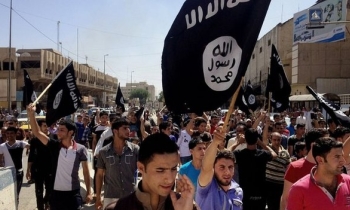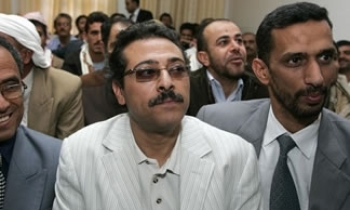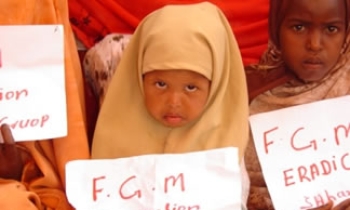Members of Afghanistan's fledging news media are up in arms over a recent government directive that they say is the first step toward imposing censorship on journalists.
The uproar began last month when the National Security Directorate first circulated a list of restrictions on journalistic activities.
According to the document, the news media are prohibited from publishing reports or interviews that are "against the government's foreign policy with regard to neighboring countries."
In addition, all contact with members of the Taliban was banned and reporters were ordered not to interview or film commanders or combatants of "terrorist groups" or to relay "provocative statements."
The term "warlord" is not to be used for leaders of the former mujahedin - the militia groups that fought first the Soviets, then each other and finally the Taliban. Many of these leaders now sit in the Afghan government or parliament.
Emigres who came back after the demise of Taliban rule in 2001 to take up posts in government must not be described as having been "westernized."
Finally, the directive said media must not represent the Afghan National Army as weak, and should instead promote a "spirit of resistance and courage in the armed forces."
There was no hint of how these new restrictions might be enforced or whether President Hamid Karzai sanctioned them.
At a meeting at the Center for International Journalism in Kabul, participants condemned the new regulations, saying they amounted to a "censorship document" that would destroy freedom of speech and of the press. The restrictions run counter to Afghan's constitution and media law, they said.
Article 34 of the constitution stipulates, "Freedom of expression is inviolable. Every Afghan has the right to express his thoughts through speech, writing, illustration or other means. … Every Afghan has the right to print or publish material without submitting it in advance to the state authorities."
But Karzai, while not willing to put his name on the document, indicated that his office supported the restrictions and urged journalists to consider what he described as the country's current difficult security environment.
Karzai's stance found support with Abdul Ghafoor Liwal, a political analyst who heads the Center for Regional Studies. "All countries in the world, including America and Europe, have some restrictions over the press in order to maintain security and national interests," he said.
But most journalists and several politicians were outraged by the government's attempt to handcuff the press.
"The issuing of this letter is a warning to democracy and press freedom in this country," said political analyst Mohammad Qasim Akhgar. "Karzai's government may have accepted freedom of speech, press freedom and democracy in the heads - but not in their hearts." Even the ministry charged with dealing with the media seemed perplexed by the new restrictions.
Shah Zaman Weriz Stanikzai, with the Ministry of Information and Culture, said his agency had no role in forming the new restrictions. He refused to consider the regulations legally binding.
"This is a conspiracy by the National Security Directorate to defame the government and place freedom of speech under pressure," Stanikzai said.
Hafizullah Gardesh and Wahidullah Amani write for The Institute for War & Peace Reporting, a nonprofit organization that trains journalists in areas of conflict.









